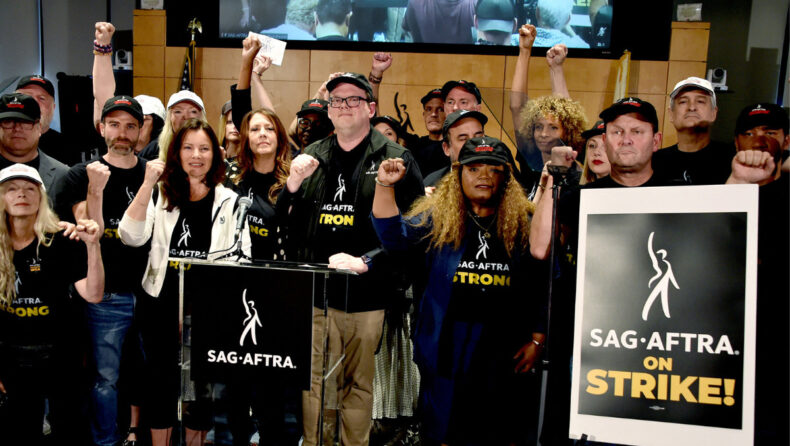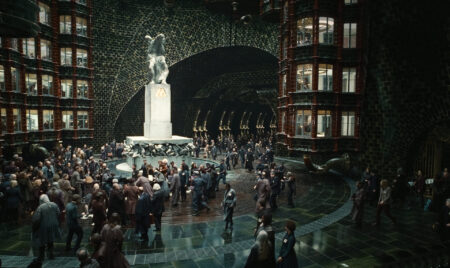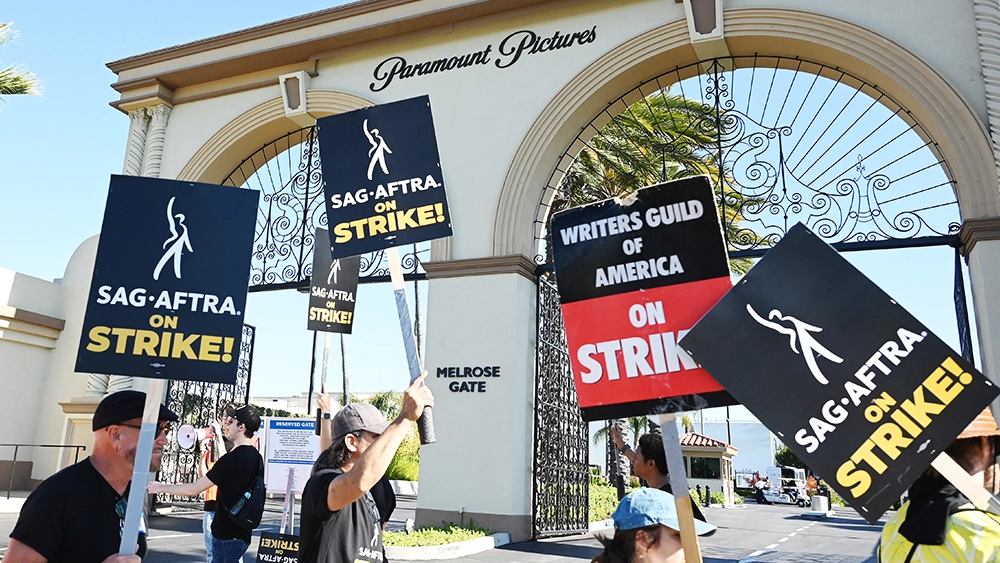
Major film studios and production houses offered actors compensation worth more than $1 billion dollars before the SAG-AFTRA rose against them in protest, joining the Writers Guild of America (WGA) last week.
“The deal that SAG-AFTRA walked away from on July 12 is worth more than $1 billion in wage increases, pension and health contributions and residual increases and includes first-of-their-kind protections over its three-year term, including expressly with respect to AI,” the AMPTP said in a statement. The AMPTP represents various organisations such as Netflix, Warner Bros, Disney and other production houses and continue to criticize SAG-AFTRA for continuing to villainize them in these negotiations.
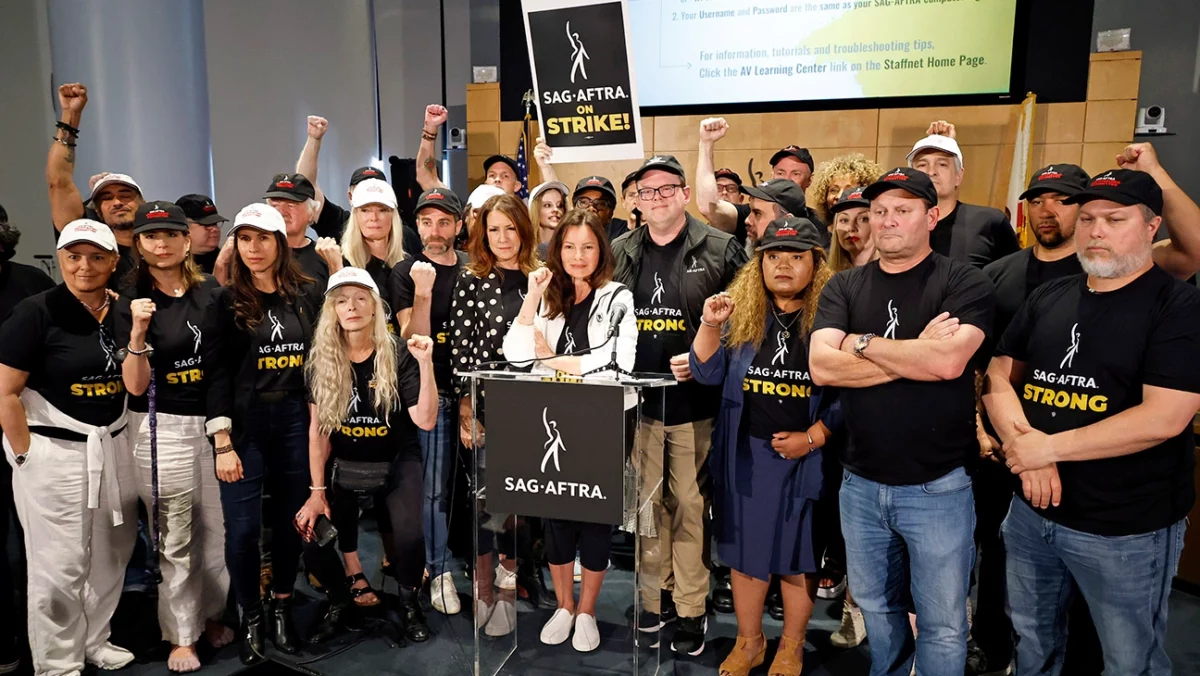
What does SAG-AFTRA want?
The tensions rose after the AMPTP issued a “ground-breaking” statement of scanning background actor’s faces using AI and using them in perpetuity with minimal pay to said actors. The WGA had been striking against the AMPTP since early May and on their refusal to budge to the SAG-AFTRA’s demands for better pay and treatment to struggling actors in the industry, the Guild, comprising more than 160,000 actors, stunt performers and others, issued a detailed list of its proposals, and what it said were the studios’ responses, under the title “We’re fighting for the survival of our profession.” Among them, SAG-AFTRA said it asked for an 11% general wage increase in the first year of the contract to make up for inflation. The union said the studios countered with an offer of 5%. The union stood on their opinion that the studios would not meaningfully engage in issues that critically affected the actors’ livelihood, because of which they joined WGA in the strike.
Because of the shift in the television industry with more favour leaning towards streaming websites like Netflix, Prime Video etc., the shift in the compensation provided to the actors hasn’t fully taken a turn for the best. Many actors are provided with extremely less residuals or royalties for the work they do in those films or movies so that their livelihood is not at stake. The guild also wants to put limits to “self-tape auditions” in which an actor performs an entire scene and sends the video to the casting agency, which is quite possible to be exposed at a risk of exploitation in the future years.
What is the AMPTP’s take on this issue?
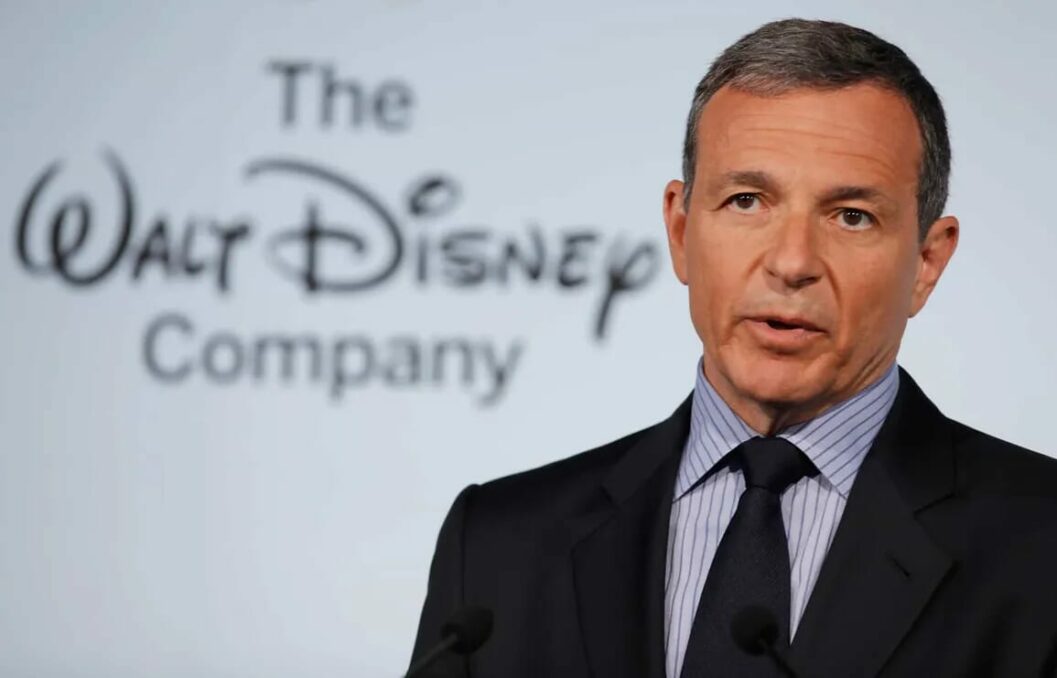
The AMPTP refuses to budge from their position in the strike, refusing to meet the SAG-AFTRA and WGA’s demands. Deadline magazine reported that an insider from the AMPTP called the strike a ‘cruel and necessary evil’, and their plan was to drain the writers and actors striking of their money, so that they would have no option but to bow to the studio’s wishes in any case. The statement seems to be a ploy to scare the associations, but enraged a flame of hate against the AMPTP with scornful messages being posted against the association on social media platforms like Twitter, Instagram etc. They cite economics as the reason for not being able to meet demands to increase residuals and give the artists fair pay and do not mention the use of AI technology much in their reviews.
Fran Drescher, the president of the SAG-AFTRA, criticized Bob Iger, the CEO of Disney, and said, “He stuck his foot in it so bad that you notice none of the other CEOs are opening their mouths,” Drescher said. “There he is, sitting in his designer clothes and just got on his private jet at the billionaire’s camp, telling us we’re unrealistic when he’s making $78,000 a day. How do you deal with someone like that who’s so tone-deaf? Are you an ignoramus? I don’t understand. We need someone with character and courage to go into those boardrooms and say, ‘Listen, we’re doing this all wrong. Why are we doing this anyway? We’re in business with these people. They are who we are building our business off of.”
What does it mean for the entertainment industry in the future?
As per the rules of the strike, actors are not allowed to work on any films, television shows of any kind or attend any promotional events or award functions. The Emmys are postponing their dates and a lot of TV shows and movies will have much later release dates than expected. The cast of Oppenheimer walked out of the premiere of the movie as a sign of protest as the strike was announced in the middle of it’s happening.
The TV networks have already filled their fall calendars with reality TV and unscripted programming, and much of that will still be able to go forward if the SAG-AFTRA strike continues. The AMPTP’s decision to freeze these works of media will mean a drop in their income with lesser people opting for subscription services due to deprivation of their preferred shows and the economic impact of the strike will be huge too, as writers contribute to about $2 billion in the economy of California. There’s no promise of the strike ending anytime soon and the outcome of it may change the shape of the entertainment industry forever.







